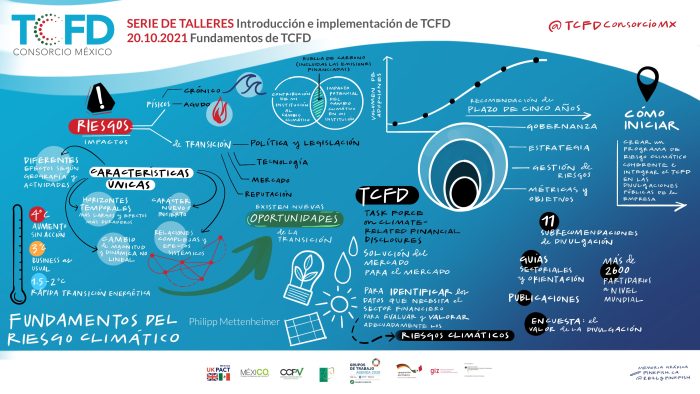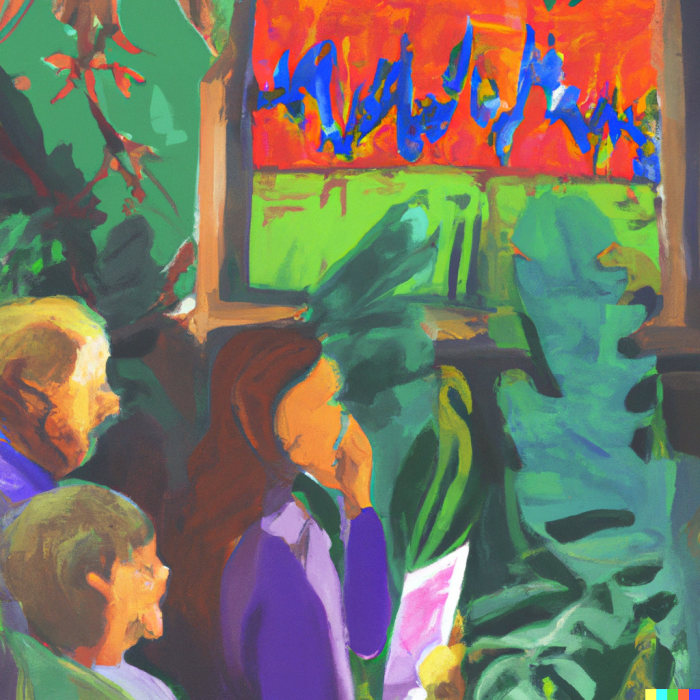According to the Organisation for Economic Co-operation and Development (OECD), the transition to low-carbon and climate-resilient economies will need to include the private sector to help mobilise resources, knowledge and innovation. The private and financial sector have recognised the importance of their role in mitigating and adapting to climate change, as well as the importance of considering climate issues when managing investment risks.
However, companies still lack knowledge about the risks and benefits of addressing climate change for their business. Therefore, the Deutsche Gesellschaft für Internationale Zusammenarbeit (GIZ) GmbH, through the project Financing for Climate Action in Mexico (FINACC) and the Mexican-German Climate Change Alliance, participated in the first Training Workshop on Corporate Climate Action Initiatives and Instruments. The training was promoted by UK-PACT together with WRI Mexico, South Pole, WWF, the United Nations Global Compact and CDP.
The objective was to raise awareness and provide key information to companies in Mexico on the science of climate change and its implications for the private sector, as well as the opportunities to undertake decarbonisation plans for green growth and their business models.
On behalf of GIZ, Gabriela Niño, Climate Finance Advisor and FINACC project preparation officer, gave a training on the basics of physical and transition risks for a resilient and low-carbon economy in the country. During her presentation, she explained to Mexican business leaders the importance of considering physical and transition risks to climate change, which require a strategic response to address them.
Physical risks refer to damages and alterations caused by climate variability, such as heat waves, droughts, floods, storms, sea level rise, among others, which have negative impacts on companies’ supply chains and in turn affect the financial sector. On the other hand, transition risks refer to changes in policy, technological innovation and market paradigms, where, by prioritising sustainable activities that help decarbonise and build resilience in economies, activities causing climate change become stranded assets.
In Mexico, a country highly vulnerable to climate change (INECC, 2022), it is a high priority to address the risks and impacts that will produce losses for businesses, the financial sector and communities. Therefore, the work of the Task Force on Climate-related Financial Disclosures (TCFD), which seeks to provide a framework for the transparency of climate-related financial risks so that companies can provide information to investors, lenders, insurers, etc., stands out. The TCFD provides recommendations to properly assess climate-related risks and opportunities and thus green the financial system.

During the presentation, two reports were shared with the companies:
- “Integration of environmental scenario analysis in day-to-day financial decision-making in Mexico” by GIZ, the University of Cambridge, the Bank of Mexico and ITAM.
- “Climate and environmental risks and opportunities in Mexico’s financial system, from diagnosis to action” by Banco de México.
Digital tools and databases such as GIZ’s Environmental Scenario Analysis (ESA) are key elements for promoting business sustainability, managing and mitigating risks, and supporting financial decision making. These fundamental tools help financial and non-financial companies with business decisions about physical and transition risks for a resilient and low-carbon Mexico, while at the same time allowing them to move towards appropriate information management processes linked to these risks, as well as financial disclosures under ASG criteria.



